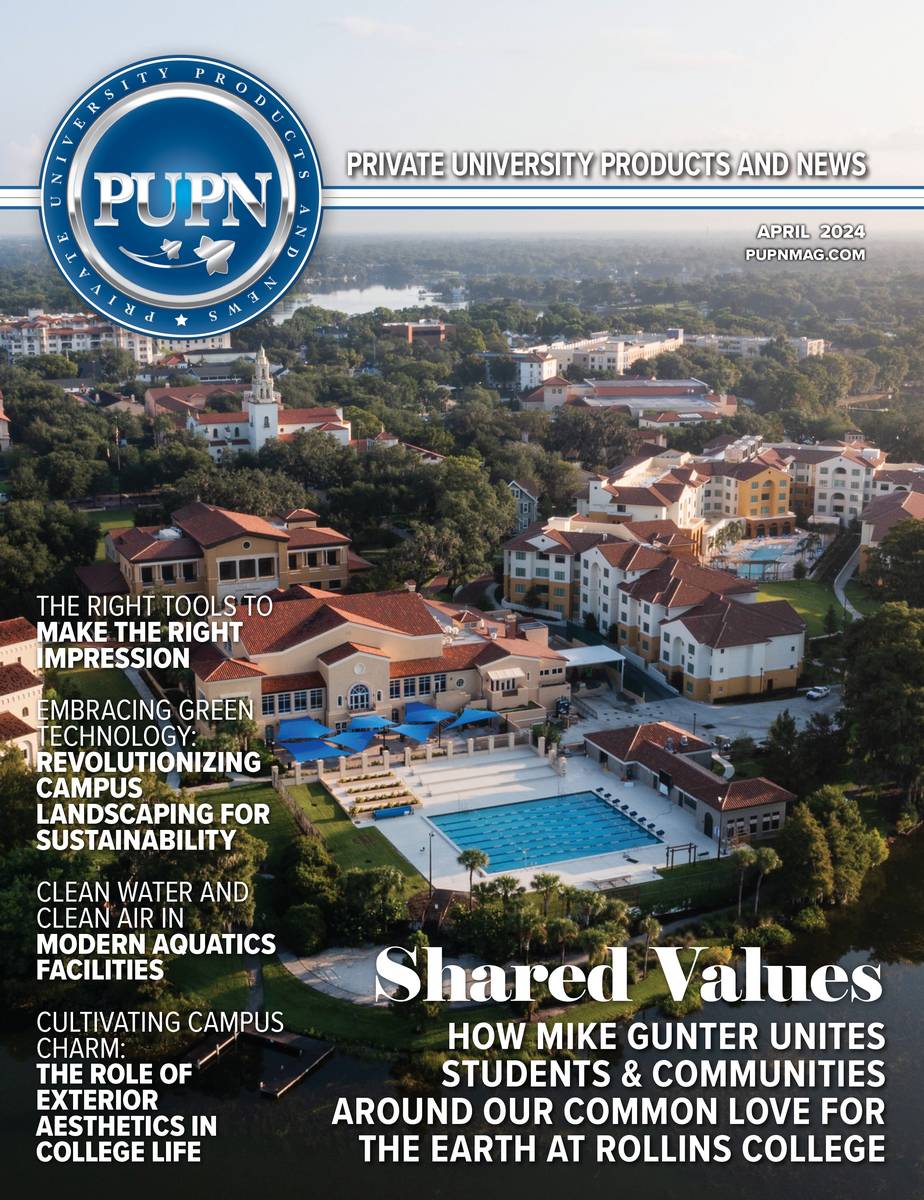Of course, I am hardly alone in my admiration of Dr. Richman, as he is a recipient of multiple esteemed fellowships, and his work has appeared in such journals as European Romantic Review, Eighteenth-Century Studies, and Eighteenth-Century Theory and Interpretation.
He is currently finishing a manuscript entitled “Transatlantic Realms”: British Romanticism and the Idea of America, 1780-1832, and his latest project traces the relationship between nascent elocutionary theories of the Enlightenment and disability in Anglo-American culture.
Dr. Richman’s tireless commitment to pedagogy, research, and the advancement of knowledge in literary and cultural studies serves as a model of professional excellence, and we are fortunate that he belongs to our community of private universities and colleges.
An Ethos of Generosity
As a long-term admirer of Dr. Richman’s scholarship, I was excited albeit a little nervous about meeting him. But what instantly became evident was his generosity, which put me at ease. I can imagine how this quality makes him a wonderful colleague, professor, and mentor.
Over the span of two hours (which flew by, so much did I enjoy our time together), he and I spoke by video chat about what attracted us to the academy, about our research, our struggles and victories, our aspirations. That he was interested in me at all, and that his interest was genuine, reflects his values both professionally and personally.
I asked Dr. Richman what he likes best about his profession at Colorado College. Given what I would learn about his devotion to his students, it’s unsurprising that he focused on experiences inside the classroom: “I get to wake up every day and talk with very smart students about books.
It’s more than that, of course: it’s important to me to help students find their voices, both in discussion and in writing.” He then identified what energizes him most as an educator: “It’s fascinating watching [my students] develop critical perspectives and to question some of their long-held assumptions–and make me question my own!”
I’ve not had the privilege of observing Dr. Richman navigate a classroom setting, but it’s apparent that not only is he actively invested in his students’ enrichment, but that he views their exchanges as an opportunity to advance his own development as a critical thinker.
In my own experiences, whether inside the classroom or beyond it, it is rare to find such intellectual flexibility and openness to the perspectives of others. This is partly what makes him such an asset to Colorado College and especially to its student body-Dr. Richman models for others a set of principles that are instrumental for intellectual growth: that learning is never complete; that “being smart” is less about what you know, and more a case of reevaluating what you think you know.
His approach to education reflects a decentering of traditional models of power, those in which the professor is cast as the unassailable authority-figure, whereas the students are locked in as subordinates. This de-centering allows his students to thrive, to find their voices, and Dr. Richman told me with great pride about a recent student who received recognition for the English department’s top senior thesis.
Dr. Richman’s approach to teaching literary analysis includes emphasis on “historical perspective and an appreciation of historical distance.” He further explains that “it’s very important for students to recognize the differences between their own experiences and desires and that of those whose experiences and desires PROFESSOR SPOTLIGHT differ from their own.” One of his expressed goals is for students to “recognize historical and cultural continuities,” and especially to “appreciate ruptures and breaks in the continuum.”
In the process of learning how to read texts through their respective historical lenses, which Dr. Richman has in the past demonstrated in the form of a mini lecture on the French Revolution, to use but one example, students are given the tools to more confidently grapple with how literary texts reflect the particular needs, desires, and anxieties of the culture from which they have been produced. Students are empowered to make connections and to ask questions that, in the absence of such vital information, perhaps they would not have even considered.
Growing as Educators amidst the COVID-19 Pandemic
During our conversation, Dr. Richman employed the phrase “generosity of community.” What a lovely phrase it is, and I’ve since been pondering the meaning he assigned to it, particularly as it applies to the realities students and faculty alike are facing amidst the COVID-19 pandemic.
One of the biggest challenges of teaching remotely, he observes, is the absence of a certain kind of energy that traditional classroom settings can produce: “The screen is flat, and the students have a more difficult time working with one another and connecting.”
For Dr. Richman, the practice of empathy in the classroom remains a constant priority, and he is sensitive to the many personal challenges (financial, social, medical, among others) that students now face as they’re taking courses remotely. And as difficult as it may be to meet his students’ online needs, he views this as an opportunity for growth.
“In positive terms, I’ve really had to rethink my approach to pedagogy in terms of outcomes-what do I want my students to get out of the course? What are the most crucial points? Which texts can generate those discussions online? Which assignments will keep them engaged in online platforms?”
He goes on to illustrate how a “generosity of community” can work during this uncertain period: “I’ve had some wonderful discussions with colleagues at Colorado College and around the country, and we’re sharing ideas and materials. That aspect of the pandemic has been remarkably exciting, and I’m ready to learn more.”
A “Generosity of Community” and the Block Plan at Colorado College
When Dr. Richman speaks of a “generosity of community,” he’s referring to a number of scenarios-applying empathy and his knowledge of disability studies to create diverse learning opportunities in a variety of different modes; sharing best practices and exciting, new research within his academic community; mentoring students who may wish to pursue an advanced degree; participating in the service of his department at Colorado College; offering advice to new PhDs such as myself, who are entering a highly competitive job market, and one amidst a period of great economic uncertainty.
Dr. Richman’s keen awareness of how generosity can be practiced within communities of all kinds is also evident in how he utilizes “the block plan,” an innovative learning system offered to the student body at Colorado College.
One block is three-and-a-half weeks long, or 18 days in total. Students take one class at 9 a.m. until noon, and the goal is to provide immersive and diverse learning experiences for students. One block at Colorado College is equivalent to a full semester’s worth of material at another school.
The block plan promotes independence and creativity, allowing students to pursue their own course of study. For Dr. Richman, the block plan means he doesn’t have to stop a good discussion. It gives him options to meet for class outside, in the library, even at his home. He explains, “I can show full films in class; I can plan a hands-on research workshop that lasts two hours in our Special Collections library.”
He also has taken his students to Colorado College’s Baca campus, a small group of buildings owned by the college in the remote Colorado town of Crestone, which is located in the pastoral setting of the Sangre de Christo Mountains. “For three days we read, write, discuss, mostly around a campfire surrounded by snowcapped mountains. It’s a great place to take my Romanticism and Nature course-what better way to discuss the sublime?”
Dr. Richman has also collaborated with a professor of botany for a course called “Plants and Poetry.” The class consists of a hybrid of literature and biology majors who teach one another about their respective disciplines. As such, the course breaks down barriers between disciplines, modeling for students the benefits of cross-disciplinary work between the natural sciences and the humanities.
“We take students collecting, bring the plants back to the lab and dissect them to apprehend and study their biological form. At the same time, we read poetry that invokes the various species of plants we collect and trace how these organisms have been used by writers and poets over three centuries.”
The Doctor Makes House Calls
Dr. Richman doesn’t know I’m aware of this. I’ve come across a recent photograph, and in it, he’s dressed in full doctoral regalia. His smile is beaming, and he’s holding a poster board with a message of congratulations to a new 2020 graduate, no doubt a former student.
Imagine being this new graduate. Imagine the disappointment of being denied the tradition of walking on stage to collect your diploma as a result of the COVID-19 outbreak-and yet there is Dr. Richman standing outside your home, sign in hand, who has not forgotten how much you deserve to be applauded and celebrated.
What a special moment it must have been, and it speaks volumes about Dr. Richman’s character, about his commitment to shaping and bettering the lives of his students. Colorado College is lucky to have him.










